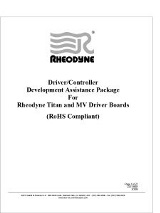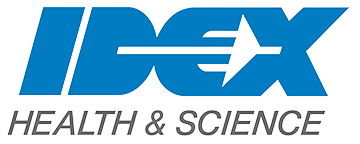-
Edge Filters vs. Notch Filters for Raman Instrumentation
by IDEX Health & ScienceThe RazorEdge edge filters and the StopLine notch filter are both available with OD>6 blocking of the laser line. Should you use an edge filter or a notch filter to block the laser line in your Raman system? Learn more.
Full story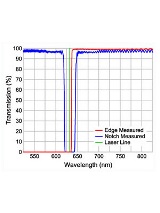
-
Selecting the Appropriate Mirror for your System
by IDEX Health & ScienceHigh-performance optical mirrors are a key component to most system designs. From bench-top setups to high-end lab instrumentation, mirrors can enable a reduced system footprint, combine multiple sources, help to form images, or other purposes. This article provides a high-level, basic overview of some of the key specification parameters to consider when selecting the appropriate mirror for your optical system.
Full story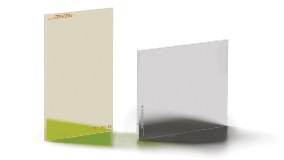
-
Optics Basics and Types of Optical Filters
by IDEX Health & ScienceSharpen your optical filter knowledge with our 12-part lecture series on filters. Presented by Turan Erdogan, PhD, these lectures were a part of a day-long group presentation.
Full story
-
KolaDeep™ Spectral Measurement System: Measure Deeper Blocking
by IDEX Health & ScienceThe Kola Deep spectral measurement system brings Optical Density (OD) theory into measurement reality. Our engineers developed a proprietary new system that allows for proven measurement of the steepest and deepest spectral features of Semrock-brand Optical Filters, ensuring your instrument will deliver best-in-class sensitivity.
Full story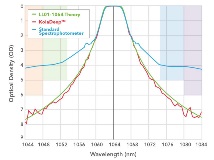
-
Laser-based Imaging: What you need to know
by IDEX Health & ScienceDue to many desirable properties like high brightness, stability, longevity and narrow spectral bandwidth, lasers are replacing conventional broadband light sources for fluorescence imaging applications. Not only have these features of lasers allowed for higher-sensitivity visualization and enhanced throughput in imaging applications, but also several other unique properties of lasers—narrow beam divergence, high degree of spatial and temporal coherence, and well-defined polarization properties—have enabled new fluorescence imaging techniques. At the same time, the use of lasers as fluorescence light sources imposes new constraints on imaging systems and their components.
Full story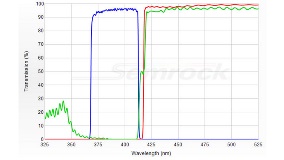
-
Group Delay Dispersion – What it is and why ultrafast laser applications care about it?
by IDEX Health & ScienceThe term Group Delay in optics is the relative amount of time light of different frequencies is delayed as it travels through a transmitting medium (like an optic made of glass) or it rattles around inside the many layers of a thin-film coating. At some frequencies (or wavelengths), it takes light longer to emerge from the medium or thin-film coating than at other frequencies.
Full story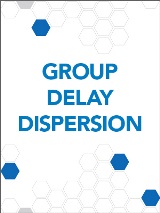
-
How to achieve high blocking by combining filters
by IDEX Health & ScienceIt is possible to increase blocking by combining two or more filters together. However, with modern high-performance filters that block light by reflection, one should not try to increase blocking merely by stacking two filters immediately next to one another—combining filters this way only works when multiple reflections between the filters are reduced or eliminated!
Full story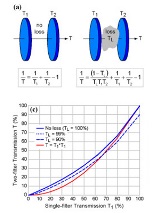
-
Build Your Own Fluorescence Filter Set
by IDEX Health & ScienceDespite the availability of “standard filter sets” (a combination of optimally designed exciter, dichroic and emitter filters) offered by optical filter manufacturers, it is not uncommon for researchers to build their own “custom filter sets” comprised of unique combinations of otherwise standard individual filters. Explore common pitfalls and key considerations when building custom optical filter sets.
Full story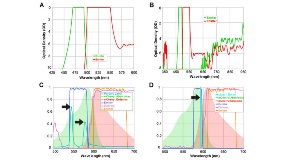
-
Polymer Information
by IDEX Health & SciencePolymer fittings and ferrules have proven to be superior to stainless steel in many analytical applications. IDEX Health & Science has compiled the following solvent compatibility information for polymers commonly used in HPLC.
Full story
-
IP (Ingress Protection) Rating
by IDEX Health & ScienceA two-digit number (as specified in EN 60529) is used to provide an IP rating to a piece of electronic equipment or to an enclosure for electronic equipment. The two digits represent two different forms of environmental influence. In this article, we explain the value of each digit. Full story -
HPLC Help Center
by IDEX Health & ScienceHigh Performance Liquid Chromatography (HPLC) is an analytical process designed to separate, quantify and analyze components of a chemical mixture. Ultra-High Performance Liquid Chromatography (UHPLC) is HPLC operated at extremely high pressure (>12,000 psi / 800 bar).
Full story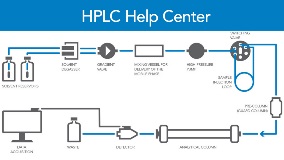
-
Ion-Beam-Sputtered (IBS) Thin-film Interference Filters for Nonlinear Optical Imaging
by IDEX Health & ScienceIn this paper we discuss various important characteristics of hard-coated thin-film interference filters, such as high light throughput, steep edges, and high out-of-band blocking, all of which require careful consideration when designing and manufacturing optical filters for NLO imaging applications.
Full story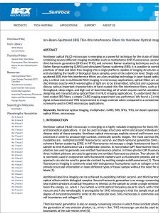
-
Optical Filters for Laser-based Fluorescence Microscopes
by IDEX Health & ScienceOptical filters play a vital role in obtaining maximum performance from complex, expensive, laser-based microscopes and it only makes sense to invest in optical filters that match the performance of the imaging system.
Full story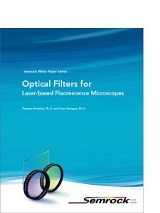
-
Vacuum Degasser Quick Start Instructions
by IDEX Health & ScienceGet started using the Systec Vacuum Degasser with this set step-by-step quick start instructions.
Full story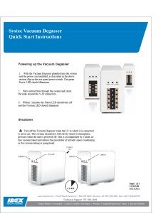
-
Type 90 and Type 3000 Switching Valves
by IDEX Health & ScienceType 90 and Type 3000 valves are manual switching valves containing six or seven ports for a wide range of applications.
Full story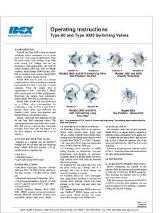
-
Type 70 High Pressure Switching Valves, Model 7010 Sample Injector
by IDEX Health & ScienceOperating Instructions: Type 70 High-Pressure Switching Valves Model 7010 Sample Injector.
Full story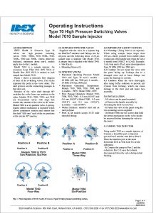
-
UART/USB Communication Protocol for TitanEX™/TitanEZ™/TitanHP™, TitanHT™ Driver Boards and MX Series II™ Modules
by IDEX Health & ScienceTitan and TitanHT boards have UART communication option available to the user. UART (Universal Asynchronous Receiver Transmitter) communication is asynchronous serial communication based on TTL (0-5V) voltage levels.
Full story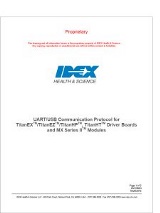
-
TitanHT™ MXT™ Replacement Pod™ Instructions
by IDEX Health & ScienceReview instructions on how to use the TitanHT™ Rapid Replacement Pod™ from IDEX Health & Science.
Full story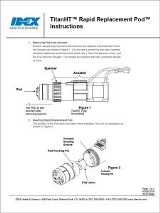
-
TitanHT™ Driver Development Package
by IDEX Health & ScienceThis Driver/Controller Development Assistance Information Package (“Information”) consists of the following documents for the TitanHT series of fluidic assemblies: 1. IDEX Health & Science TitanHT Driver Board Description 2. IDEX Health & Science TitanHT Dimensional Drawing
Full story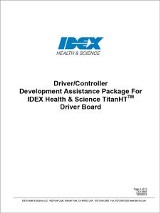
-
TitanEX™, TitanHP™, and TitanEZ™ Driver Development Package (English)
by IDEX Health & ScienceThis Information is proprietary to IDEX Health & Science, LLC, and is provided by IDEX Health & Science as a service to assist IDEX Health & Science OEM customers in the development of drive and control circuitry to be used in conjunction with Rheodyne motorized valves.
Full story